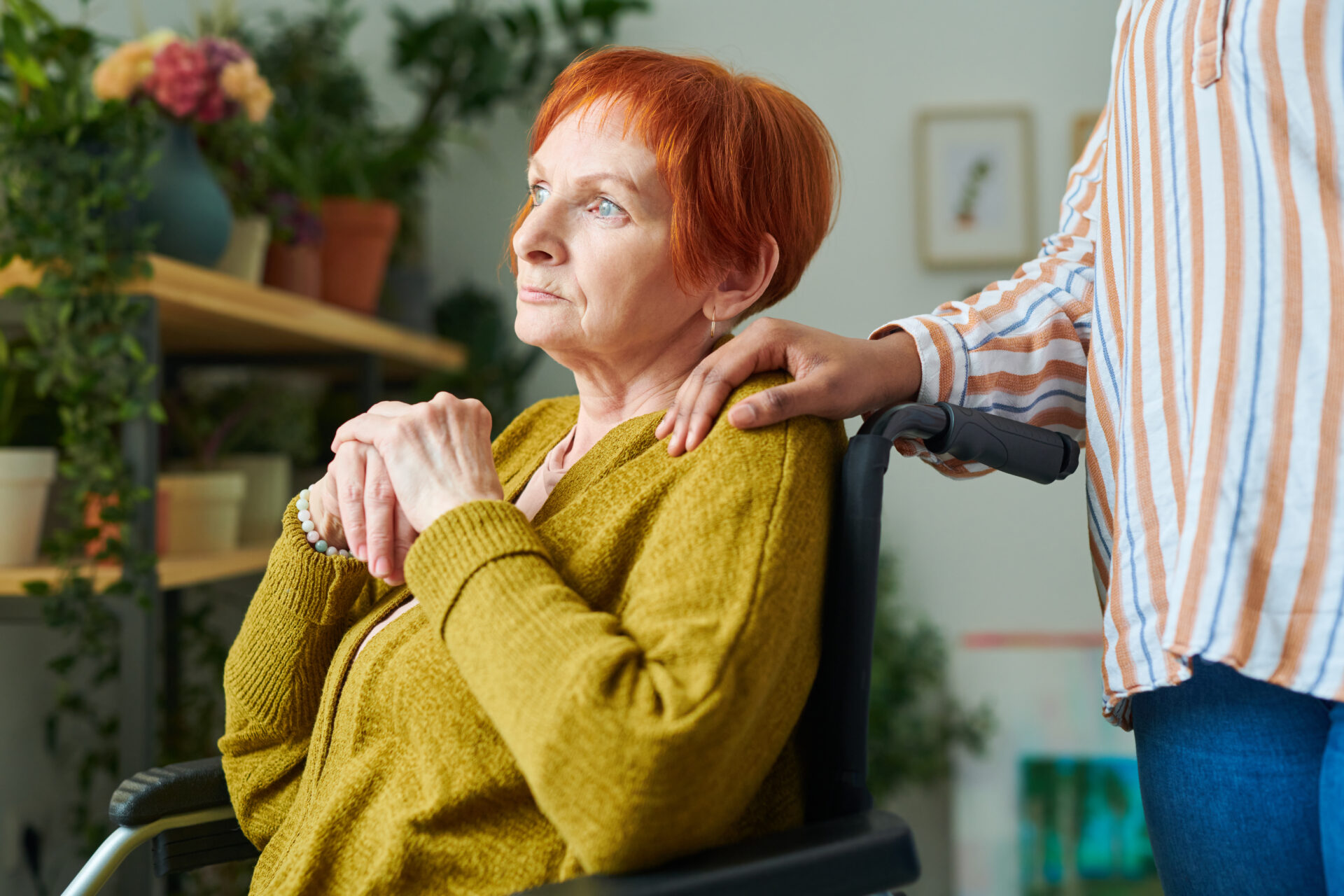In elder care, we often work with people who have been diagnosed with one of the “3 Ds” that often affect older people: dementia, delirium, and depression.
Although these are very different conditions rooted in distinct causes, it’s important to distinguish between them, especially in older adults, as misdiagnoses can lead to poor outcomes such as inappropriate treatment or premature long-term care placement.
In this month’s blog, we discuss the three different conditions to help inform your discussions with your older loved one, primary care physician, and eldercare specialist.
Why is it important to know the difference between the 3 Ds?
Much of the confusion in making a proper diagnosis lies in the similar ways the conditions, especially depression and dementia, present themselves. For example, memory loss, confusion, and forgetfulness are classic signs of dementia. However, depression could be the cause. Mood and behavioural changes are also common signs of both conditions.
When your older loved one starts showing these symptoms, it’s crucial to avoid making assumptions and taking a course of action without consulting a doctor first.
Likewise, delirium can also be mistaken for dementia or depression, so it’s essential to know the distinction before making any treatment decisions without advice from your loved one’s doctor.
What are the differences between depression, dementia, and delirium?
Let’s break down the three conditions to provide a better understanding of their causes, similarities, and treatment options.

Depression
According to statistics from the Canadian Coalition for Seniors’ Mental Health, up to 20% of older adults in Canada have symptoms of depression. Many of these folks can feel depressed due to feelings of isolation, illness, or a lack of mobility that restricts their movements.
An important distinction between depression and the other two Ds is that it’s considered a mental health condition as opposed to a physical ailment of the brain. Furthermore, unlike dementia, depression is not considered a normal part of aging. These characteristics make treatment options for depression very different.
Signs of depression include persistent sadness, crying, or feelings of guilt or regret, increased anxiety, a loss of interest in activities they once enjoyed, changes in appetite and sleep patterns, restlessness, irritability, fatigue, poor concentration, feelings of guilt, bad hygeine and living habits, dwelling on unhappy memoires and, in some extreme cases, suicidal suggestions or just wanting to “end it all”.
It’s normal for people to feel “blue” occasionally, but if the person exhibits these signs for more than two weeks, they may require medical intervention. Be sure to mention to their doctor if they are also exhibiting common dementia symptoms such as memory problems, confusion, social withdrawal, or hallucinations, so that they can check for cognitive decline as well.
Treatment options for depression include antidepressant medication, therapy, and participation in support groups.
Dementia
Dementia is typically caused by a decline in brain function. There are many different types of dementia, but Alzheimer’s disease accounts for 60 – 80% of dementia diagnoses.
There is no cure for this life-changing condition; however, with the right treatment plan, including medication and psychosocial therapies, it can be slowed down so the person can still enjoy a high quality of life.
The signs of dementia to watch out for include impaired memory, thinking, and judgment, trouble communicating, confusion, changes in personality and behaviour, and an inability to perform daily tasks.
Interestingly, many people who realize that they are in cognitive decline during moments of clarity become depressed. In these instances, patient, emotional support from medical professionals and the family is critical to the older person’s overall well-being.
Delirium
This condition is also sometimes confused with dementia and depression, as it can trigger memory loss, albeit only short-term. Unlike the other conditions, delirium is often reversible if treated early.
Delirium is considered a medical emergency that is caused by sudden brain dysfunction. It can be caused by dehydration, reaction to medications, pain, infections, or being exposed to new, unfamiliar surroundings, including new living conditions. The signs of delirium include confusion, reduced awareness, cognitive disturbances, and altered sleep, attention, or perception.
Symptoms often appear suddenly and can come and go without warning.
Treatment for delirium includes addressing the underlying cause with hydration, improved nutrition, better sleep habits, and physical activity.
Can the 3Ds be mixed?
It’s possible for someone to experience delirium, depression, and dementia simultaneously. Although all the conditions are distinct, they can present similar symptoms, which can make an accurate diagnosis challenging.
For example, someone with dementia can develop delirium, adding another layer of impairment to their cognitive functions. Similarly, depression is quite common in people who understand that they have dementia, which can exacerbate dementia-related symptoms and behaviours.
However, some key differences can help identify the underlying condition. For example, someone with dementia will tend to forget names, events, or recent conversations, even when prompted, show an inability to correctly determine time and place, or attempt to cover up or deny forgetfulness. None of these are typical signs of depression, so if they are present, dementia might be the cause.
As always, it’s best to seek out medical advice when you have any concerns about your older loved one. And if you need additional eldercare support along the way, CareHop is here for you.
Quality In-Home Elder Care Services in Toronto, Etobicoke, Mississauga, and Brampton
CareHop specializes in providing safe, professional eldercare services, including on-demand Alzheimer’s disease and dementia care, personal care, and assistance with physical activities whenever you need it.
Contact us today for a free, no-obligation discussion to discover how we can help you with safe, cost-effective eldercare solutions.




